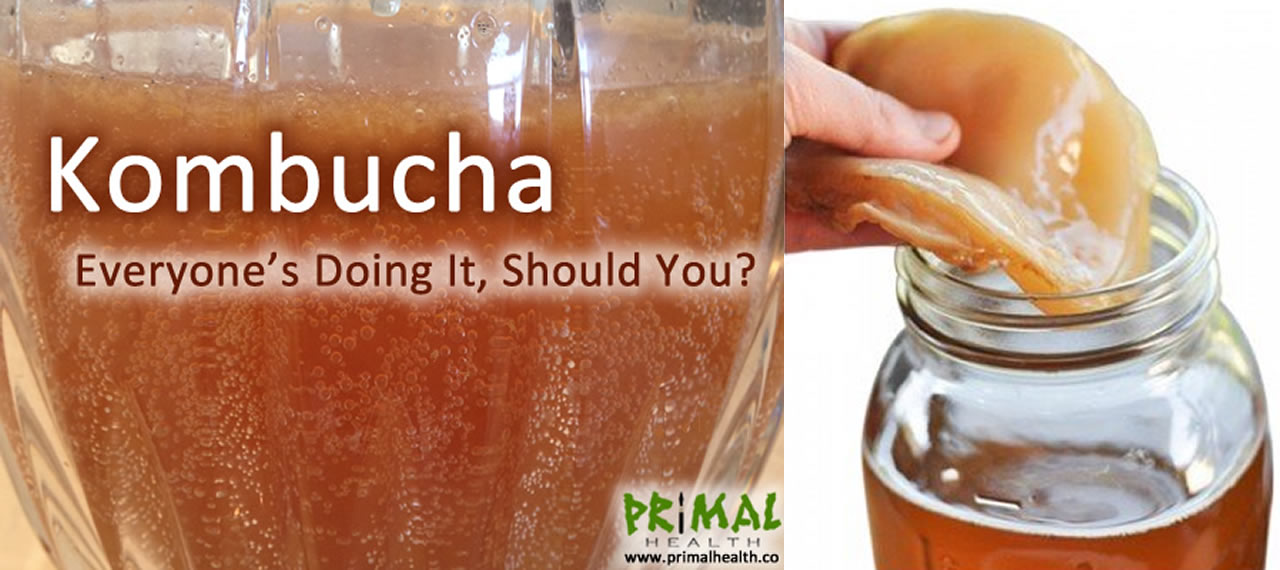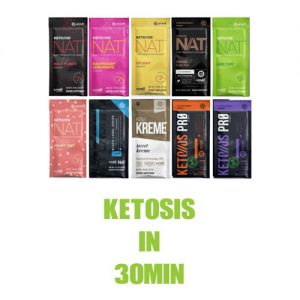What is this weirdly-named drink that everyone is into lately? Kombucha, pronouced COMB-BOO-CHA, is the hottest drink in the health food shops and many people are even making it at home. But what actually is it and is it really that good for you?
What is Kombucha?
Kombucha is tea with sugar that has been fermented. That simply means that a culture has been added to the tea and then it has been left to sit out at room temperate for about a week. During that time, the culture feeds off the sugar and the nutrients in the tea and produces tons of healthy bacteria. Kinda like yoghurt, but a drink!
The culture for kombucha is called a SCOBY, which stands for Symbiotic Culture (or Colony) Of Bacteria & Yeast. Sounds gross, and definitely looks gross, but as we’ve all been slowly re-learning from our wise ancestors, good bacteria is your gut’s best friend. And a happy gut means a healthy body.
As with many fermented foods and drinks, Kombucha has been around for thousands of years, and many cultures including the ancient Chinese, have used it as a health elixir.
Is Kombucha really good for you?
The Chinese knew what they were talking about. In addition to all of the beneficial bacteria, Kombucha also contains B-vitamins, enzymes, antioxidants and large quantities of detoxifying acids. So yes, it’s a very healthy drink!
Though some like to debate over exactly which ailments kombucha can help ‘cure’, I look at it this way: If a naturally fermented drink can boost your digestive system and immune system in a variety of ways, it will surely be a factor in prevention and/or healing of any kind. It’s not like medicine which targets one thing in particular, but rather is an overall health booster and supporter. And that’s the holistic, primal way. 🙂
Isn’t Kombucha full of sugar?
Some wonder how something with so much sugar in it can be good for you. And what about the caffeine in the tea? However, most all of the caffeine and sugar is ‘pre-digested’ by the scoby and bacteria, so as long as you wait 7 – 30 days before drinking, the sugar content will be very very low. The longer you wait to drink it, the less sugar will be left. You can even tell this by tasting it, as the sweet tea will become more and more sour.
What does Kombucha taste like?
Just like with yoghurt and sauerkraut, the fermentation process produces a sour or vinegary taste. For some people, that takes getting used to, and for others it’s divine (usually the same people who love olives and pickles!). Because of the sour taste, kombucha is often flavoured with fresh fruit, herbs, and spices. It can also be used as a ‘mixer’ – diluted with water, sparkling water, fresh juice, or put into a shake or smoothie. Or drunk strong and straight in smaller quantities. We drink ours out of a big shot glass.
The fermentation process also produces natural carbonation, which gives kombucha that refreshing fizziness. Goodbye soda, hello kombucha!
Why make Kombucha at home?
As with most things – especially trendy health foods – making your own kombucha at home can save you a fortune. Kombucha is right there with chicken broth as one of the absolute cheapest ‘superfoods’ you can make at home. And it takes only a few minutes of your time!
The cost of homemade Kombucha
Once you get a scoby culture, you can use it for the rest of your life. And if you know someone who makes kombucha, you’ll get a scoby for free because they multiply at each batch. Then all you need for 1 litre (1 quart) of kombucha is 2 tea bags, 1/4 cup of white sugar, 1 litre of filtered water, and a 1/2 cup of already fermented kombucha (from your last batch or your friend’s) or distilled white vinegar (if it’s your first batch).
So your costs per litre (quart) of homemade kombucha is 2 tea bags and a scoop of sugar. Even if you make sure to get organic tea and sugar, that’s hardly 20 cents I would guess! Compare that to several dollars to buy kombucha at the store, or even more money to buy probiotic, vitamin and supplement pills.
Our adventures in Kombucha
We first fell in love with the bubbly yummy taste of Kombucha through buying it at our farmer’s markets. However it was a big expense each week, and we’d run out of it quick. Especially now that I’m healing my leaky gut, I wanted to have some to drink every day without breaking the bank.
So now we’ve been making our own kombucha for about 6 months, and have a continuous brew on the kitchen counter which only requires my attention about once a week for 10 minutes. This provides us with more than enough kombucha, always there in our fridge. And we still haven’t run out of delicious flavours ideas to make.
Other great links:
https://www.healthambition.com/kombucha-tea-health-benefits/
Kombucha: Everyone is Doing It, Should You? – May 2014








